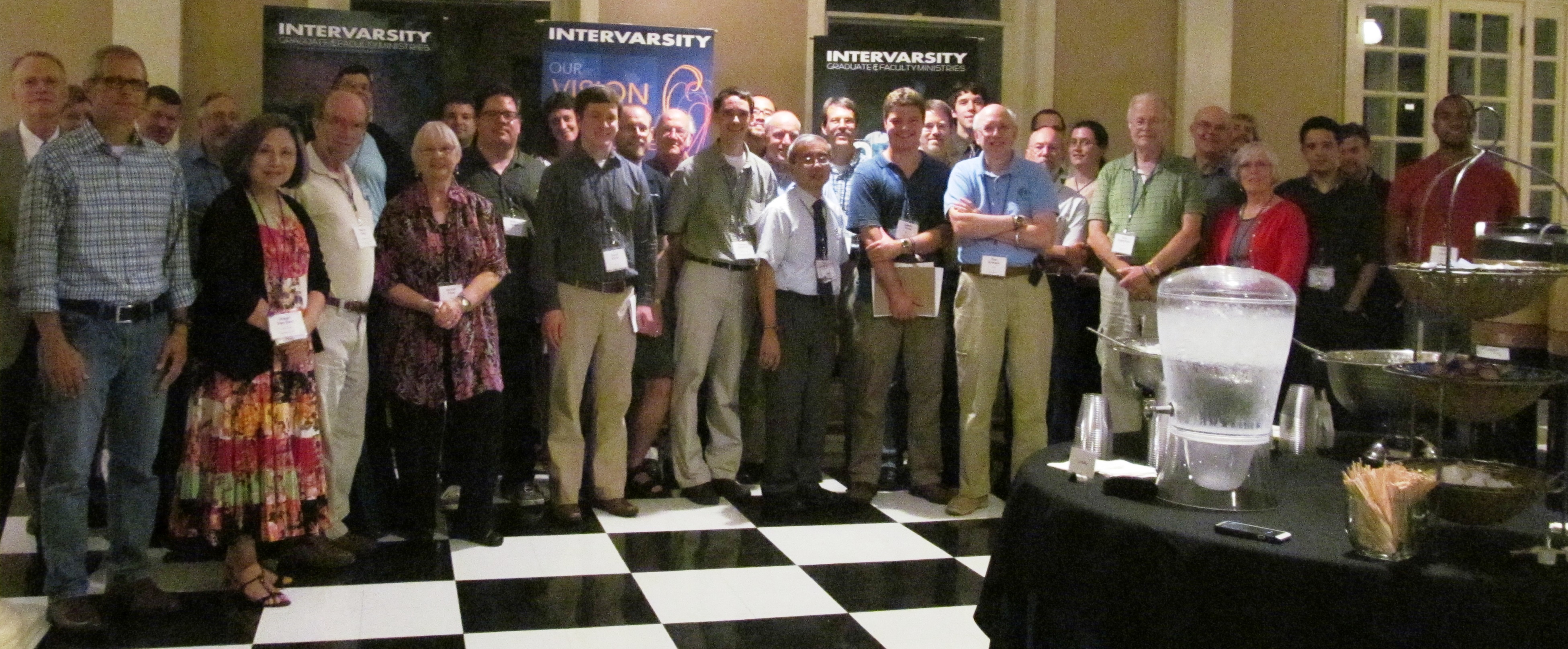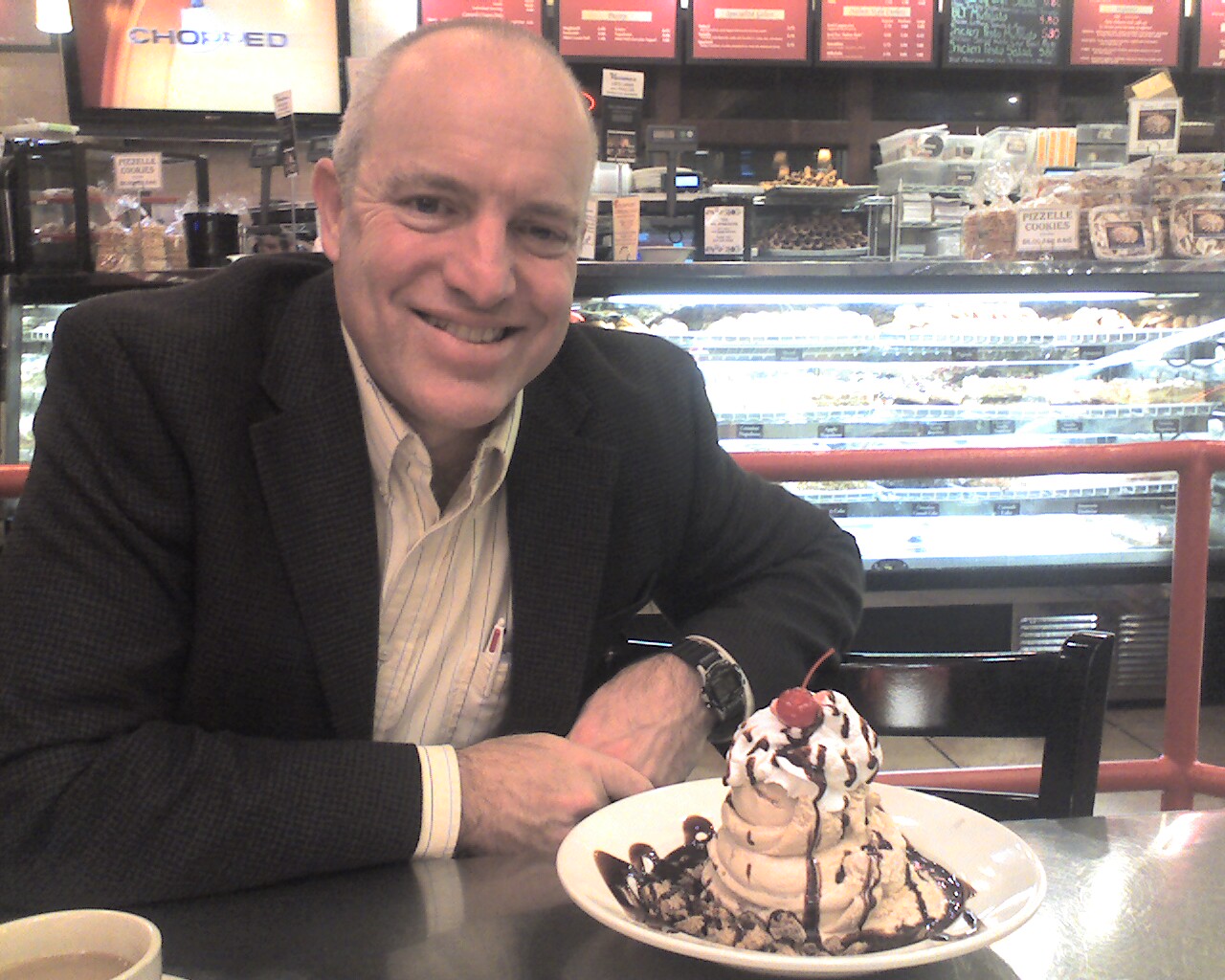Introduction
Thank-you to Dwight Schwartz, Ph.D., for taking a few minutes to share a glimpse of his pre-college journey through school — a teaser for the insights he will relate not only in his Candidate for What? series, but also in his future contributions to the ESN blog.
As some of you know, I have greatly appreciated getting to know Dwight over the past several years as we have co-labored with InterVarsity Christian Fellowship‘s Graduate & Faculty Ministry (GFM). This summer we were part of the team which represented GFM and the Emerging Scholars Network (ESN) at the American Scientific Affiliation‘s (ASA) Annual Meetings. Despite my undergraduate degree in biology (Grove City College) and decade immersed in InterVarsity’s ministry at Carnegie Mellon, I am a relative newcomer to active involvement with ASA. Dwight, along with Terry Morrison[1], has been a great encouragement in exploring resource sharing with ASA.

A few items for you to consider as you read Part I of Dwight’s series Candidate For What?
- How do you relate to Dwight’s journey through school?
- In what manner are you ahead/behind those your age and/or in your academic stage? And how has your relationship to “peers” affected your self-understanding and relationships with others?
- What were you “chomping at the bit”[2] to study in high school? How did you express/share this passion with others? How did this pan out with regard to your college major(s)?
- How do you share your journey through school with others? In what manner does your faith relate to your vocation (more on this coming from Dwight in future posts). Note: If you have interest in sharing your story with Emerging Scholars, please click here to read a description of writing for the blog and drop me an email. ~ Thomas B. Grosh IV, Associate Director of ESN, editor of ESN’s blog and Facebook Wall.
Part 1

One of the consequences of being born in November is that you are – or were, in the times in which I was born – theoretically a candidate for going to kindergarten at age four. You’d turn five before the end of the calendar year, so you’d be five for most of kindergarten. I know someone who skipped kindergarten as a four-year-old, went straight to first grade as a five-year-old, and was eventually held back for a redo of first grade. I was held back from starting kindergarten until the end of my sixth year; I was five when I started kindergarten and turned six soon thereafter.
All this to say, I have always been on the older side of my class groups throughout my educational career. When I attended high school, I was chomping at the bit to be allowed into the tenth grade biology class as a ninth grader (as a few were allowed to be), and I was chomping at the bit to take the advanced algebra class at a freshman. I did not get the best grades in those classes, but I liked being in the hardest classes anyway. My advanced algebra teacher slightly “misremembered” my legacy to my sister about ten years later, saying, “he always got the right answer, but I couldn’t figure out how he was getting it.” The truth was that my first foray into a serious algebra class was the first of many disciplinary episodes (“disciplinary” in the sense of punishment) in my life as a forever-incomplete mathematician: I began my math life as a totally undisciplined poser and had to build – slowly over a longer-than-ideal amount of time – the disciplines of systematic engagement in mathematical figuring. I am quite sure I am still not done becoming a disciplined practitioner of mathematics.
I took the hardest courses in science all through high school, usually as soon as it was possible to take them, skipping only an opportunity at something called the Chemistry Instruments Club in favor of things like Photography Club and Track and Field (which I seem to recall posed a conflict to the Chemistry Instruments Club).
I enjoyed excellent instruction in the sciences while in high school. Perhaps this is part of why my thinking then about career was coalescing around the idea of studying science in college. Many questions remained (e.g., how would I pay for college), but I gradually concluded that I liked science, even if I wasn’t ready to choose between Physics or Biology. I decided that Chemistry was a middle-of-the-road jumping off point for a lot of different options. You are getting the more unvarnished version now; I am not exactly commending this strategy for students in today’s world. What we now know is that the world is very interdisciplinary, and that now there are electrical engineers who do biology and computer scientists who are involved in almost any conceivable intellectual enterprise that has a quantitative component (witness the rise of Computational Biology and Bioinformatics).
Click here for Part 2 & 3, entitled Candidate For What? —Collegiate Chemistry.
Footnotes
- Director Emeritus of Faculty Ministry. Prior to joining InterVarsity, Terry was a professor of chemistry at Butler University. ↩
- Or should we say “champing at the bit”? The grammarist did not give me the final answer. What do you have to offer? ↩
Dwight Schwartz is the Mid-Atlantic Area Director for InterVarsity Christian Fellowship’s Graduate and Faculty Ministries. He joined the staff of InterVarsity Christian Fellowship in 2003 after completing doctoral studies in Chemical Physics (UIUC, 1997), and postdoctoral research, teaching, and IT support at Montana State University—Bozeman. He is married to Maria (Kowalsky) Schwartz. Dwight enjoys engaging graduate students and faculty members across the spectrum of academic disciplines in matters of importance to scholarship and the Christian faith. He maintains an active interest in science, electronics, computers, and computer programming. Dwight is a member of the American Chemical Society, the American Physical Society, and the American Scientific Affiliation.

Leave a Reply